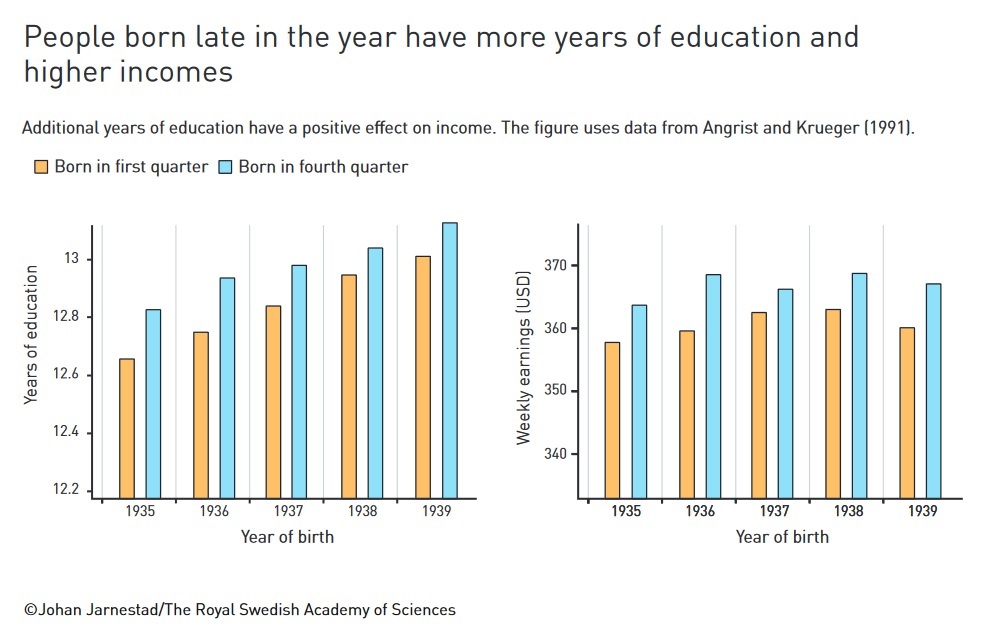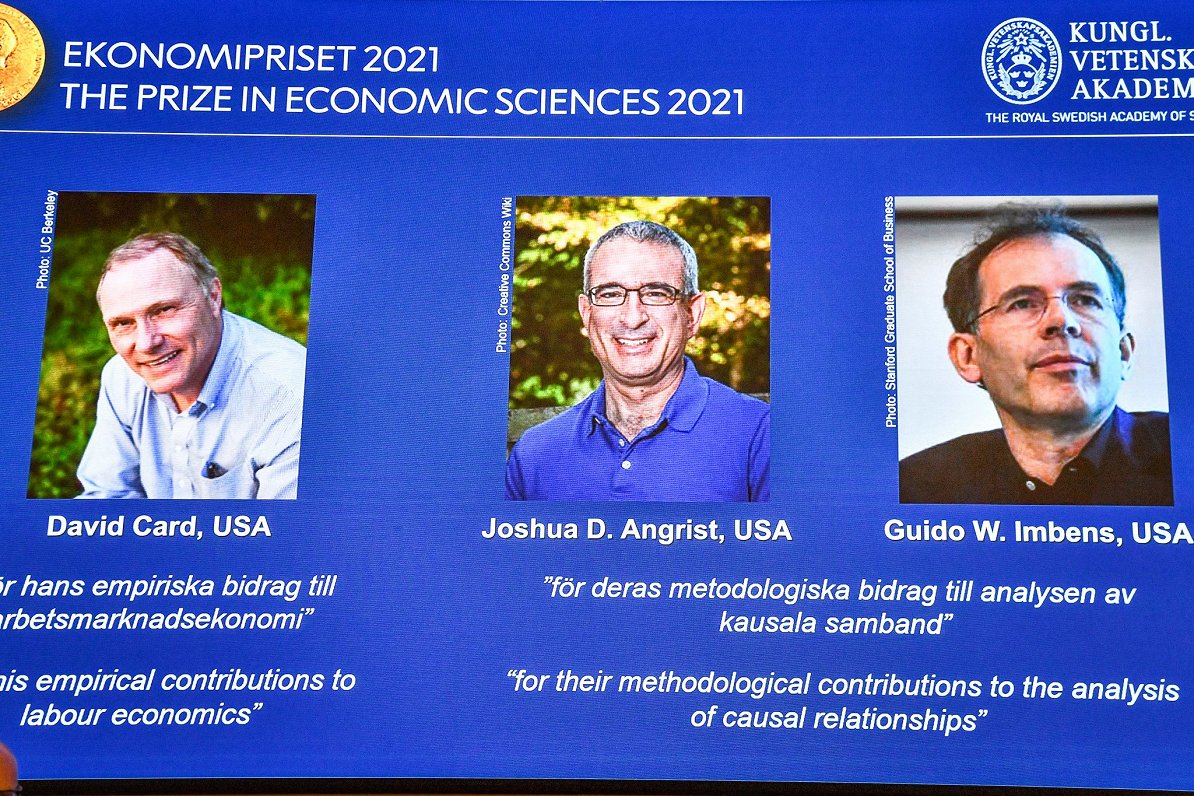The Nobel Prize in Economics has been awarded this year to three researchers whose research has helped them to better understand the regularities of the labor market, such as how employment is affected by the minimum wage and immigration, or how much education is linked to income.
The prize paid by the Bank of Sweden for its contribution to the development of economics will be given to Canadian-born scientist David Kard (65), American economist Joshua Engrist (61) and Dutch-born economist Guido Imbens (58).
All three scientists are professors of economics at prestigious US universities: Kard works at the University of California, Berkeley, Engrist is a professor at the Massachusetts Institute of Technology, and Imbens is a lecturer in economics at Stanford University.
Natural experiments
Research by Nobel Prize winners has shown that natural experiments can explain many of the processes in the labor market. The Nobel Committee concludes: Thanks to their research, we now understand the principles of the functioning of the labor market much better than 30 years ago.
The Nobel Committee points out that understanding the link between cause and effect is particularly important in the social sciences. For example, how does immigration affect employment rates and workers’ wages? How close is the link between the education obtained and the remuneration received?
We know that people who spend more time in education get paid more. However, the aim of scientists is to find out whether it is a direct causal link, or whether people who are willing to study longer are, by their nature and abilities, those who would have achieved greater achievements in life in any case.
Understanding the causal link is hampered by the fact that it is not possible to experiment with people in the economy: we cannot intentionally leave a group in society without education to see how they will do.
However, this year’s Nobel Prize winners proved that many questions can be answered through natural experiments. Natural experiments are situations that arise in society but cannot be directly influenced by scientists.
Those born at the end of the year earn more
In medicine, clinical trials take place where scientists have complete control over the course of the experiment (which participants will receive the new drug and who will serve as a control group). In natural experiments, on the other hand, situations arise when one group of society is affected differently from another, even though scientists cannot influence the observed human behavior.
For example, Joshua Engrist studied how a person’s education and later income are affected by the month in which he or she was born.
Relationship between time spent in education and income level
Photo: Nobel Committee
–
–
It turned out that people born at the beginning of the year start school sooner and have the opportunity to complete it earlier, so on average they spend a little less time getting an education than children born at the end of the year.

The study found that people born at the end of the year get a better education and earn more
Photo: Nobel Committee
–
–
Studies have confirmed that those born at the end of the year have a higher level of education and a higher income.
Raising the minimum wage does not reduce employment
David Card studied the relationship between the minimum wage and the employment rate. In the early 1990s, most economists believed that raising the minimum wage reduced employment by increasing labor costs for the employer. However, there may have been another causal link in the process: as unemployment rises, employers reduce wages, which in turn encourages demands to increase the minimum wage.
Card and colleagues studied the situation in New Jersey, where the minimum wage was raised, and compared it to the situation in neighboring Pennsylvania, where there was no such increase. The researchers concluded that raising the minimum wage would not lead to a significant reduction in the number of jobs available. One explanation was that employers were able to pass on higher labor costs to customers by raising the price of their goods and services.
Researchers also studied the impact of immigration on the labor market. They concluded that the influx of immigrants did not reduce the wages of the local population born in the country, but that immigrants who arrived during previous waves of immigration suffered the most from increased competition.
One explanation was that locals are reorienting to jobs that require better language skills, so they do not have to compete with immigrants.
Learn more about the 2021 prize in economic sciences:
Press release: https://t.co/iEOlcTmfu9
Popular information: https://t.co/9CfIzxs4qF
Advanced information: https://t.co/oQKFez3nKz#NobelPrize pic.twitter.com/Gm7z1SY3xA— The Nobel Prize (@NobelPrize) October 11, 2021
Nobel Prize winners are entitled to a cash prize of SEK 10 million (approximately EUR 985,000); half will be received by Card, and the other half will be divided between Engrist and Imbens.
–
Highlight text and press Ctrl+Enterto send the text to be edited!
Highlight text and press Report a bug buttons to send the text to be edited!
–
–


